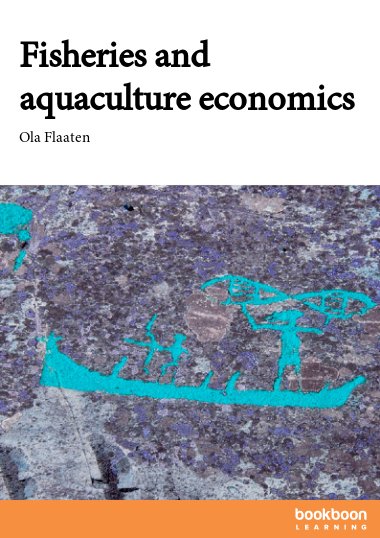Many marine fish resources are overexploited and the total world production of wild caught fish has declined a little since the peak in the mid-1990s. Aquaculture production has now surpassed wild catch and is still rising. This book discusses the economic and biological forces and consequences of wild fish harvesting, for both open access and sustainable management. Single species, multispecies and ecosystem issues are included. The aquaculture part discusses production, demand, environmental issues and management, from both firm and society perspectives. Examples from several geographical areas and different species are discussed within the framework of environmental and resource economics. This book should be of value to students both in economics and multi-disciplinary fisheries programs, as well as to people in industry and management.
About the author
Dr. Ola Flaaten is a Professor of Resource Economics at the University of Tromsø, the Arctic University of Norway. His professional career started at the Ministry of Fisheries, Oslo. He has spent sabbatical years at the University of British Columbia, Canada and the University of Portsmouth, UK, as well as shorter terms at University of Copenhagen and University of Nha Trang. For three years, he was Head of the Fisheries Division, the Organisation for Economic Cooperation and Development (OECD), Paris. For two periods, he has been the advisor to joint projects between Nha Trang University, Vietnam and three Norwegian universities, funded by the Government of Vietnam and the Government of Norway. He has been on international panels evaluating fisheries programs in Denmark and Mozambique. He was a member of a Government of Norway appointed committee on climate change. He initiated and coordinated the Master program in Fisheries and aquaculture management and economics (NOMA-FAME), Nha Trang. Professor Flaaten has participated in and headed research projects funded by Norwegian, Nordic and EU research councils. He has published three books, book chapters, journal articles, conference proceeding papers, and economic and policy reports, in both English and Norwegian, with some translations to Russian and Vietnamese. He holds the Distinguished Service Award of The International Institute of Fisheries Economics and Trade (IIFET), Certificate of Appreciation from Nha Trang University and Diploma and Medal from The Minister of Training and Education, Vietnam.


